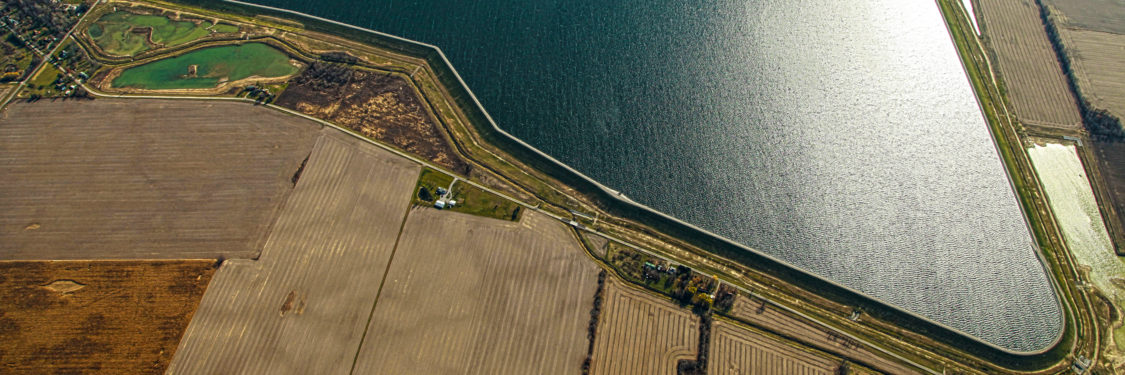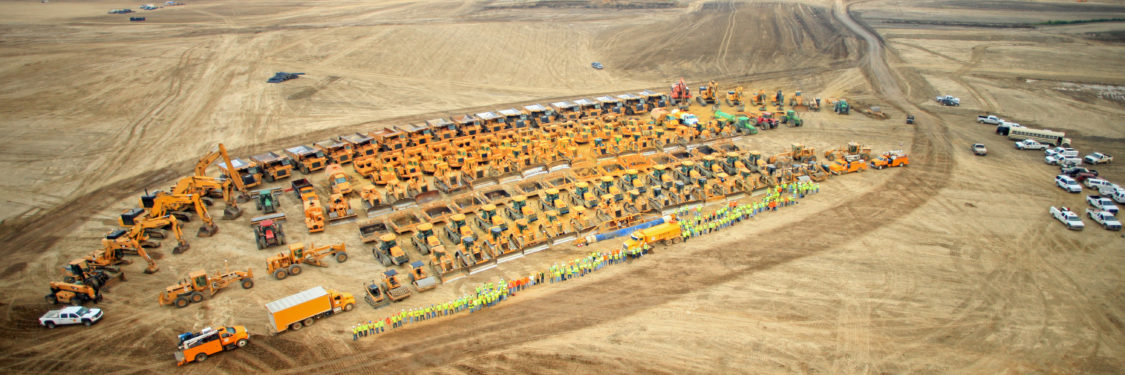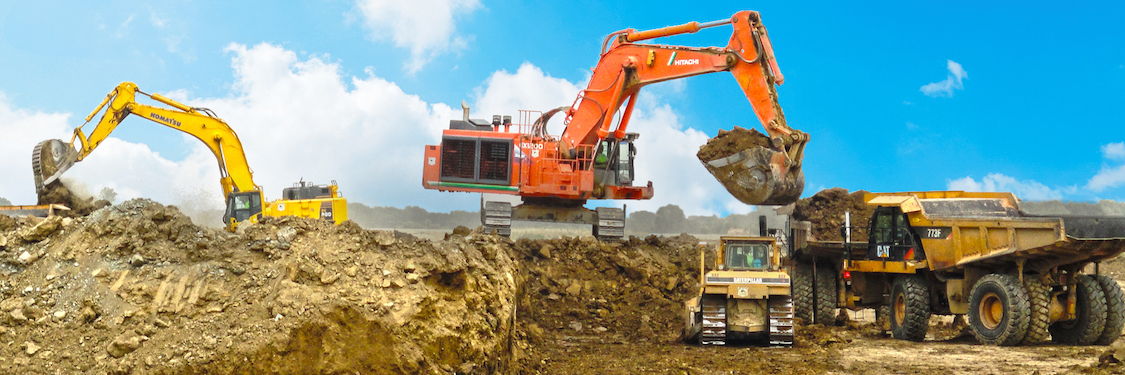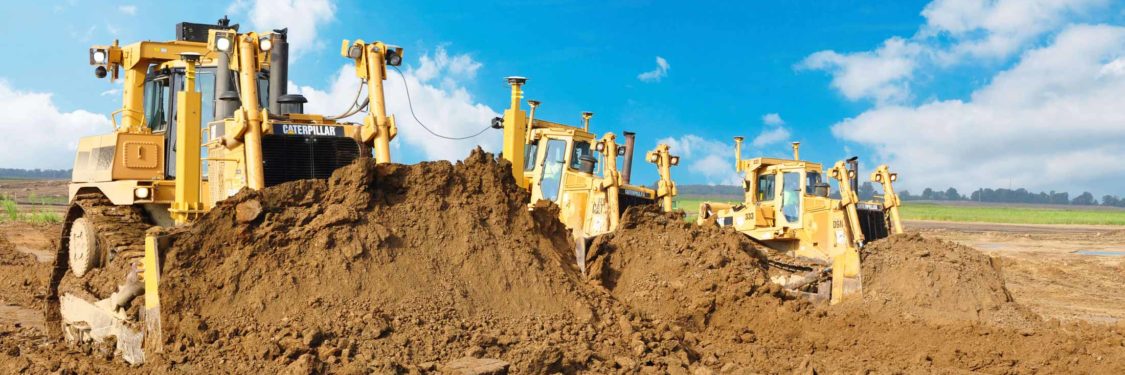Columbus UpGround Water Reservoir
Columbus UpGround Water Reservoir, Richwood, Ohio
LOCATION
Richwood, Ohio
Project Highlights
- Removal of 56,000 feet of agriculture field tile
- 850 acres (over 1 million cy) of topsoil removal
- 10 miles of 15-foot-deep, 20-foot-wide cutoff trench
- 110,000 tons of sand blanket drain
- 5 million cy of structural fill
- 280,000 tons of rock shore protection
- 55,000 feet of security fencing
- 800 acres of proof rolling
- Finish grading totaling 2,400 acres
- 4 million combined cy of compacted clay liner and protective soil cover
- 800 acres each of 40-mil flexible polypropylene liner and non woven cushion geo-textile liner
- 375 miles of liner seaming and associated QA/QC testing
- 800 acres of electric leak testing of installed liner material
- 2,000 cy of structural concrete
- 18 drilled caissons
- Energy dissipating inlet structure with pre-fabricated access bridge
- 6 automated gate valves for off-site control of outlet structure
- 6,000 feet of 72-inch pre-stressed concrete pipe
- 7,000 feet of onsite storm sewer
- 5 miles of blanket drain outlet pipe
- Boat ramp and overflow structure
Project Description
Overcoming challenges from record rainfalls and record-high temperatures, The Beaver Excavating Company successfully completed the nation’s, and perhaps the world’s, largest upground reservoir featuring a geosynthetic liner. Equally impressive, the project included the longest dam in Ohio and was the largest single-volume earthwork project completed in the company’s 60-year history.
The 850 acre reservoir, which will help supply water to the City of Columbus’ Department of Public Utilities, measures more than 5 miles in circumference along the crest of its 45-foot-high dam and is designed to store more than 9 billion gallons of water. Beaver Excavating’s project work force consisted of 115 pieces of large earthmoving equipment and more than 180 construction personnel on site at one time. At peak production, crews averaged more than 320,000 cy per week working single shift while completing the project’s combined 10 million cy of earthwork.
Related Projects
AES/AEP Power Plant Expansion-Maidsville, WV
First Energy Tinkers Creek Stream Restoration-Cuyahoga County, Ohio
ODOT S.R. 8/271 Interchange Reconstruction-Summit County, OH
Republic Services Countywide Disposal-Bolivar, Ohio
Tanger Outlet Center-Pittsburgh, PA
Timken Underpass Bridge Construction-Canton, Ohio
ODOT S.R. 58 Railroad Grade Separation-Wellington, Ohio
ODOT S.R. 7 Slope Excavation-Jefferson County, Ohio
ODOT US Route 33 Bypass Construction, Phase III-Nelsonville, Ohio
Marysville UpGround Water Reservoir-Marysville, Ohio



